Blog post by ELP Student Andy Reed (Business Administration and Information | Class of 2020)
Some people may see this and roll their eyes at the thought of reading another “What I Learned this Summer” post from yet another college student. Others may call this the most ambitious crossover since Scooby-Doo! and WWE: Curse of the Speed Demon. Regardless, I would like to share my experience of getting a job and working as a startup intern in a region that is rarely acknowledged as a hotbed for startup activity. I feel that the best way to do this is in Mythbusters’ format, answering the controversial questions about startups and the DC region one-by-one.
Myth: It’s easy to get an internship/job at a startup
This is by far the biggest fallacy of the startup world for a college student or recent grad. People think that getting a job at a startup is a walk in the park just because the company lacks the name and clout of a Fortune 500 corporation. This could not be more wrong. I sent dozens of cold emails just to set up a few calls with UM alum and other founders/employees at tech startups, and even then only a few of those contacts were even remotely interested in interviewing for an intern position. Even if you are a programming prodigy or a design wiz, the startup(s) you are interested in just may not be hiring. Startup companies don’t hire on the same routine schedule that the big banks or consulting firms do, and quite frankly only hire people well after they have realized that they are short-staffed. You have to be persistent and make sure to sell every company on your unique value and how you will help contribute to the company’s growth.
Myth: Startups have no rules or structure
This one is busted for sure. While most people imagine startups as a handful of people working out of a garage or a WeWork, in reality, a startup can be a company that has grown to tens or hundreds of people. The startup I interned at, Virtru, had about 80-90 employees during the summer I worked there. While I went in expecting a flat organization and a lack of true structure that is characteristic of larger companies, what I discovered when I arrived was a surprise. Virtru was starting to grow to the point that it needed structure and along with it came bureaucratic behavior. Getting approval for small things like login credentials and large things like new software required a frustrating amount of time and communication with different admins. Part of this was due to security and compliance concerns, another critical part of surviving as a technology company in the 21st century. Structure and rules are by no means bad, and in my opinion are necessary as a company grows. Don’t let media like HBO’s Silicon Valley fool you, the existence of structure is something you should remember when interviewing for jobs or working at a startup.
Myth: DC has a thriving tech scene
This is a myth that even after three months of living and working in our nation’s capital, I am still not sure I have a definitive answer to. My office was located in the District’s downtown, and while there were a few other noteworthy startups with offices in the area, you wouldn’t have known walking down the street. Interestingly enough, there were half a dozen people at Virtru that had previously worked together at another startup called Opower in Arlington. All of the people that I asked about the DC tech claimed that it was the sort of place where “everybody knows everybody,” and after attending the DC Tech Meetup a few times, I concluded that the District’s tech scene was definitely intimate. Even if you include Northern Virginia and Maryland, the DC tech scene still doesn’t come close to the size and velocity of that of the West Coast and the Northeast. At the end of the day, I felt that while my experience at a DC startup was awesome, the tech industry in DC is strongly overshadowed by the government and defense industries.
Myth: Having a good mentor is everything
Going into the summer after my sophomore year, I thought that having a mentor would have been a nice bonus to whatever internship I secured. However, after working at a high-growth startup for three months, I feel that having an awesome mentor was the majority of the reason that I thought so highly of my experience. Getting thrown in front of the runaway train that is a startup can be intimidating and unfamiliar, and the answer to many of your questions is likely an unforgiving “I don’t know.” In this ever-changing environment, having a mentor that can coach and guide you in the right direction makes a huge difference. My mentor, Gina Valo (Organizational Studies, Class of 2005), both helped me understand how Virtru worked from both a product and organizational standpoint, and then placed a great deal of trust in me after the fact. It was the good balance of offering me both guidance and responsibility that made me feel like a valuable member of the Virtru team, despite only being an intern on the Customer Success team. Going forward this will always be one of the first things I look for when evaluating a new employment opportunity and one that I think you should consider as well.
Myth: Working at a startup is worth it
Despite my determination to be part of the ever-growing world of technology and new ventures, I would be lying if I said I didn’t sometimes feel pressure from my peers and family to take a corporate job and sell out. However, after my summer in yet another environment where I felt that I was going against the grain, I can wholeheartedly say that working at a startup is a worthwhile experience. Quite frankly, I think that it was a better learning experience than any of the classes I have taken in the business school, as it offered me clearer insights into the strategy and everyday operations of a company. It certainly isn’t for everyone, but I think that interning/working at a startup offers great lessons in persistence, problem-solving, and scrappiness that you don’t get in a corporate environment. If you can find a startup that aligns with your mission, has great mentors, and offers you an opportunity to learn new skills and strategies on a daily basis, I think that you would be hard fought to find a better way to spend your summer.




